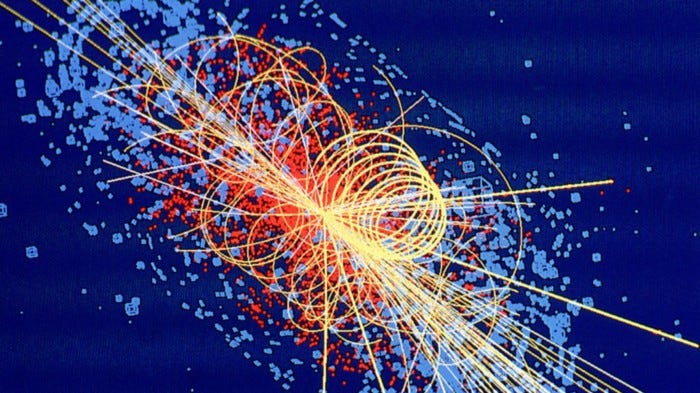Particle physics stands at the crossroads of the theoretical and the experimental, engaging in a delicate dance reminiscent of a tango where each partner, in turn, leads and follows. These two realms are intrinsically interdependent, and their relationship not only defines the boundaries of our knowledge but also pushes the very limits of human inquiry into the fabric of the universe.
To comprehend whether particle physics leans more towards theory or experiment, one must first appreciate the foundational aspects of both domains. Theoretical particle physics is akin to an elaborate architectural blueprint, a conceptual edifice meticulously constructed from a deep understanding of mathematical principles and physical laws. This school of thought seeks to unravel the underlying mechanisms governing the minutiae of particles, their interactions, and the forces that bind them. Theoretical physicists frequently employ intricate models and formulations, such as quantum field theory, to elucidate the behaviors and properties of subatomic particles. For instance, the Standard Model of particle physics serves as a comprehensive framework that describes the fundamental constituents of matter and their interactions, elegantly knitting together concepts from quantum mechanics and relativity into a cohesive narrative.
In contrast, experimental particle physics epitomizes the tangible manifestation of those theoretical constructs. It is the empirical arm of the discipline, replete with grand laboratories and massive detectors designed to observe phenomena that occur at scales and energies far removed from our everyday experiences. Particle accelerators, such as the Large Hadron Collider (LHC) at CERN, serve as modern-day alchemical laboratories where particles are propelled to near-light speeds, colliding with each other to unleash curtains of data filled with potential revelations. Here, scientists meticulously collect and analyze the remnants of these collisions—like archaeologists sifting through ancient ruins—searching for fragments that could either reinforce existing theories or herald the dawn of new understandings.
This portrayal of the theoretical and experimental branches offers a powerful metaphor: the theoretical physicist is the dreamer, skimming the surface of an ocean of possibilities, while the experimental physicist plunges into the depths, battling the currents of chance and uncertainty. Each domain informs the other; theories propose models that guide experimental designs, while unexpected experimental results can challenge established theories, compelling them to evolve or even be discarded in favor of more comprehensive explanations.
However, this reciprocity is not without its challenges. One of the most captivating aspects of particle physics is the phenomenon of “theoretical prediction” versus “experimental discovery.” Theoretical predictions can sometimes lead to stunning discoveries long before empirical evidence is present. A poignant illustration of this is the Higgs boson, predicted by theorists in the 1960s but only observed decades later, in 2012. The protracted journey from theoretical conjecture to experimental validation underscores an essential truth within the discipline: theoretical frameworks are sometimes crafted through pure mathematical elegance, departing from the experimental realities until science converges upon their validation.
Moreover, the quest in particle physics often entangles itself within the labyrinth of philosophical inquiry. The boundary between what can undoubtedly be known versus what rests in the shadows of speculation blurs, often invoking discussions about the nature of reality itself. Is our understanding of fundamental particles an approximation of an ever-elusive truth, or do they represent a definitive articulation of the building blocks of existence? This notion also hints at the notion of unobservables—elements posited by theory yet never directly observed, leaving a tantalizing mystery shrouded in enigma.
Furthermore, one must ponder the role of advanced technology in modern particle physics. Innovations in computing, data analysis, and detection methods have revolutionized how both theoreticians and experimentalists engage with problems at hand. The sheer volume of data generated from experiments—often in the petabyte range—demands the development of advanced algorithms and artificial intelligence methodologies for analysis and interpretation. Thus, the interplay of technology with theoretical and experimental modalities fosters a symbiotic relationship, enabling physicists to probe deeper into the universe’s most enigmatic questions.
Amidst rising enthusiasm for particle physics lies the question of its societal implications. While findings emerging from the field may seem distant from daily living, they pervade our existence through technologies borne of quantum mechanics: from semiconductors that power our electronic devices to advancements in medical imaging. At a macro level, the synchronous movement of theoretical concepts to experimental application continues to shape our understanding of the universe while driving innovation across various sectors.
Ultimately, the question of whether particle physics is theoretical or experimental encapsulates a broader narrative—a narrative that calls into inquiry the very nature of science itself. It highlights the importance of interdisciplinary collaboration, as theoretical insights fuel experimental conquests, paving the way for unprecedented discoveries. As the interplay between theory and experiment continues to unfold, so too does humanity’s quest for knowledge, inching ever closer to the mysterious tapestry of existence woven from the fabric of spacetime and fundamental particles. Through this enduring relationship, particle physics retains its unique appeal, inviting curious minds to step into a world where abstract thought converges with tangible exploration in an everlasting quest for understanding.












